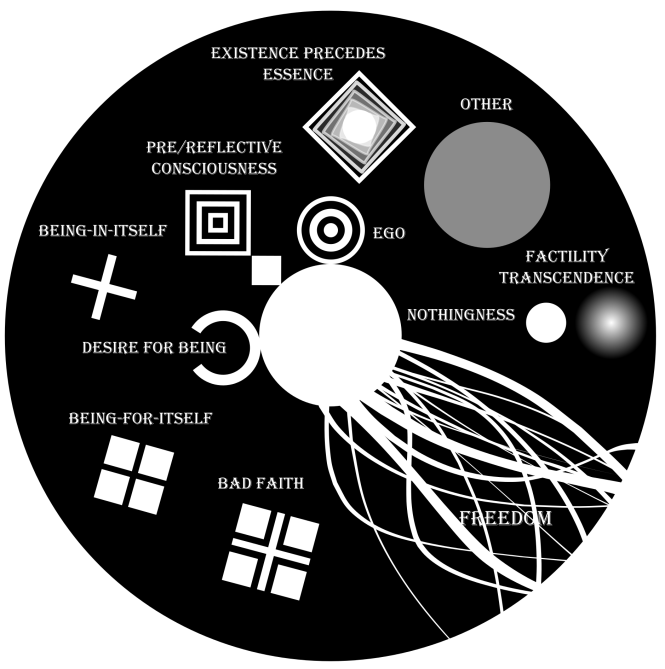Sartre, the well known existentialist of the 20th century, radicalizes human freedom by returning to the ontology of “being”. Human existence lies within a condition of nothingness (no-thing-ness) where things are characterized by what they are not or namely their negation or nihilation (e.g. fragile things lack stable unity). Subjectivity or human experience is divided into pre-reflective and reflective consciousnesses of objects. Pre-reflective consciousness is directed towards the transcendent object without configuring a notion of the “I”; such acts are spontaneous, transparent to the self, and engaged with the phenomenon as a starting point (first-order). Reflective consciousness negates pre-reflective consciousness and so the unity of the negation contains a duality between some regular agent “I” from memory, and the object. i.e. Consciousness becomes aware of itself. Thus, ego is borne out of reflective consciousness that is imposed upon pre-reflective consciousness. The Other is borne from ego recognizing that is an object of another being’s gaze.
Being can be posited in two way: Things may be in-itself or existing without justification in relation to other things (it is fully determinate). Examples include inert things such as rocks, air, and bottle. This differs from human beings whose identity is not in relation to things within but always to something else; being for-itself negates being in-itself and can be imagined as a lack of a being. For-itself, through nothingness, is thus able to form attitudes to other beings by seeing what it is not. This desire or project for being gives for-itself a radical freedom to make itself from nothingness. However, the tendency of for-itself to run away from its freedom, to become an in-itself or an absolute (God) is a common way people fall into “bad faith”. This can be applied to the many social roles (waiter, father, lover) that people adopt in their every-day lives; when such roles are no longer functional personas but have been adopted as essences of being (using such roles as excuses for example), than the person is rejecting the task of determining what these roles are not.

The rejection of human nature (existence precedes essence, no essences and priors w.r.t. existence) places agency/freedom is a difficult claim to follow. In Sartre’s day, he rejected the Freudian notions of the unconscious and psychological repression as having an influence on behavior. A priori models such as Jungian archetypes were obviously ignored. Modern advances in genetics and evolutionary biology (our behavior similarities with primates and other hierarchy building animals) would have supplied evidence in the other direction. Here, Sartre’s hedges a bit with his concepts of facticity and transcendence. Facticity is a set of facts viewed from a third person or objectifying stance (e.g. my skin color). Being can be aware of its own facticity but to adopt these facts as determining what I am would once again be in bad faith. The solution is to transcend these facts into what the space of possibilities conditioning upon these facts (e.g. the fact that one is short can be transcended by the behaviors and attitudes on has in light of being short such as humor).
